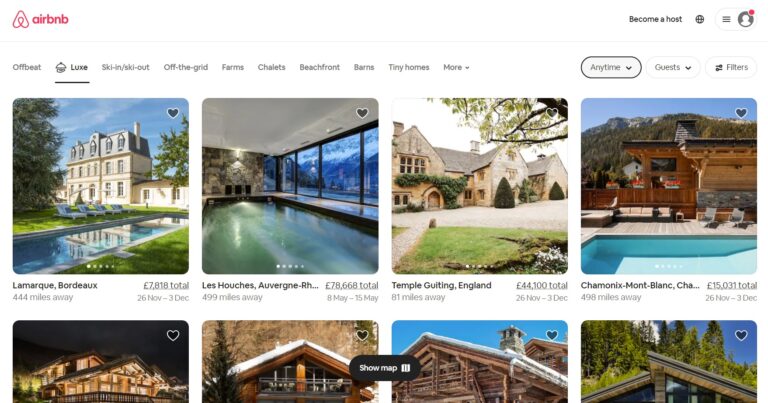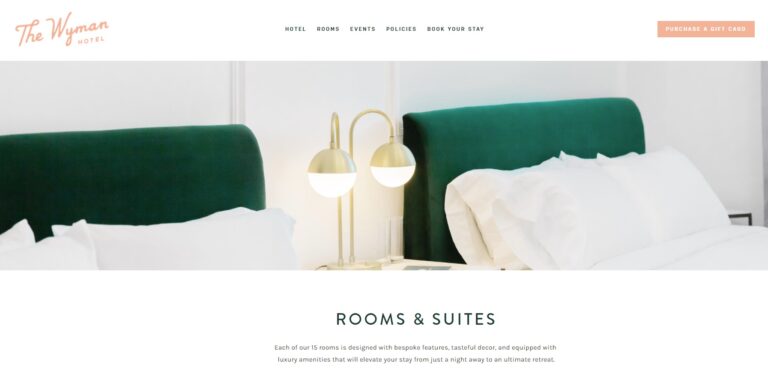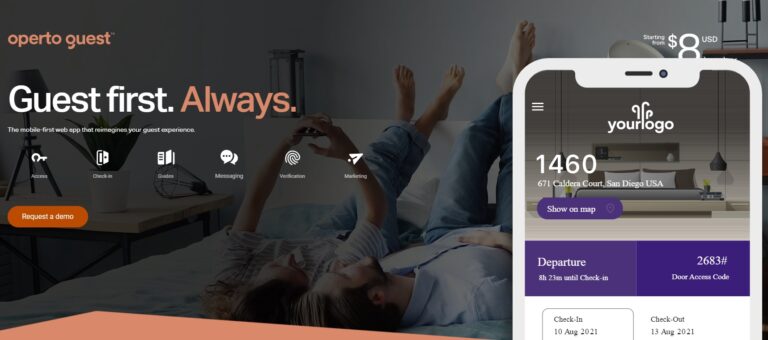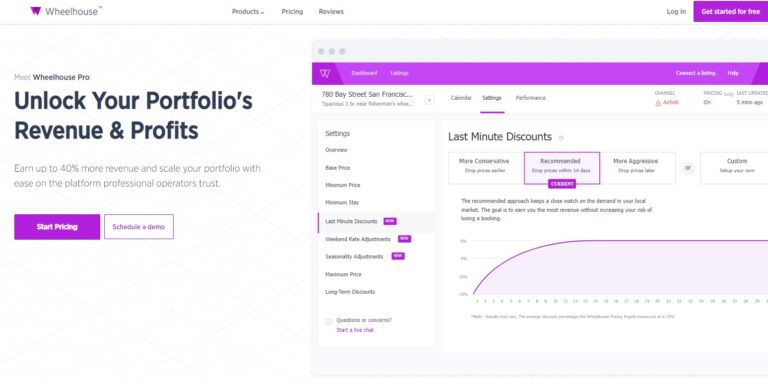How to Make a Property Management Business Plan [+Template]
Whether you’re looking for funding, planning your goals for the next 18 months, looking to expand into new markets, or simply want to get control over your budget, putting together a proper business plan is crucial for a professional vacation rental manager.
And with the vacation rental property management industry becoming increasingly competitive, making sure you have a solid plan for success is more important than ever.
And that means ensuring your budget and projections are on point as you plan your next 18-24 months in business.
But we know that writing a business plan for your own property management business from scratch can be a real challenge, especially if you got into hospitality to make guests happy, rather than because you’re an expert at making financial projections or setting KPIs! We get it.
Follow our five-step process to create a business plan that’s perfectly tailored to property management, including everything from your mission and vision to marketing and revenue.
A great plan will help you take control of your business goals, so you can invest in the best for your property management company for true long-term success. Start here.
Find out how you can scale your cleaning operations.
Why should vacation rental operators have a property management business plan?
Creating a killer business plan is a major starting point for any professional property manager who wants to differentiate themselves from the hobbyist Airbnb host.
Maybe you’re looking to secure funding or a loan, and you need to show others proof of your goals. Maybe you want to plan your next few months in business and need a strategy to budget correctly, set the right rates, and make accurate financial predictions.
Perhaps you have big ambitions for your business such as adding new properties to your portfolio, expanding into new markets, or paying off your mortgage on your existing units.
Maybe you want to get all your ducks in a row internally, and you’re looking to bring more of your vacation rental operations in-house (such as cleaning and laundry), or hire a manager to manage the day-to-day, and automate your systems so you can expand without hiring a ton of new staff.
Or maybe your goals are more personal, such as fully funding your summer vacations with income from their short-term rentals.
Whatever your dreams for your property, setting down a proper plan is the starting point for making them a reality—not only for investors or outsiders but for you too.

How to create a business plan for property management: 5 steps
There are almost as many different types of business plans as there are businesses, but we recommend starting with this five-step plan to keep things simple.
Use these next five steps as your business plan template and “fill it in” by answering the questions as you go.
- The mission and vision
- The current market analysis and expansion plans
- How the business operates
- Marketing plan
- Financial projections and revenue management

The mission and vision
This is the time to lay out your overall goals for the business, why you started it, and what you ultimately hope to achieve. It’s as much to clarify your own goals and plans over the next 12-36 months, as it is to detail them for possible outside investors.
This is the section where you can think big, but don’t forget to include important, tangible details on how you plan to make your dreams a reality, such as:
- Who you are, your background, and your training. Some states require you to have certifications to manage properties legally, so be sure to add that if relevant to you and your business.
- Who are your ideal clients; who are you targeting (and who are you definitely not)? Both in terms of property owners, and guests or renters?
- What is your long-term vision for the business, and how are you going to ensure it’s sustainable and profitable?
- What you’re working on in the next few months, what are your tangible goals?
- What property management services will you provide that will mark you out as different or better?
- How will you measure success specifically over the course of the plan? You can refer to your KPIs here and go into more detail later in the plan.

The current market analysis and expansion plans
This part of the plan is where you want to demonstrate that you understand the current market, and understand the context in which your business fits.
You’ll want to include:
- A brief assessment of your major competitors and what already exists out there that could arguably be seen as similar to your business. For example, is your business similar to the high-tech urban pads offered by Sonder? Or charming-but-modern like The Wyman?
- Businesses that you see as inspirational or complementary to yours (without replacing the need for your business)—for example, lean start-up Jurny, or digital nomad specialist Mint House?
- Clearly stating what marks your business out as different, and what your unique selling points are compared to what’s already out there—are you targeting a specific type of clients, such as CozyHaus and its “creative thinkers”? Or are you launching a new kind of platform, such as hotel-STR hybrid Locale?
- You can also include your plans for expansion in this section of your business plan and reference how you intend to evolve or grow your business to differentiate from others in the field.

How the business operates
This section of the plan should include the ‘nuts and bolts’ of your business, so readers can see how it actually operates.
This means including more information on your business model, what your day-to-day operations look like, your org chart and staffing structure, and your KPIs (key performance indicators) that you use to measure your outcomes.
Business Model
How does your business actually work? What model does it use, and what is your strategy to run it and generate revenue?
This might include definitions and structures such as:
- Co-hosting – Working with a STR host to co-manage the listing of their property for them.
- Franchise model – Franchisee (such as an aspiring rental manager) building the operation ‘on the ground’ using centralized branding, guidance, and processes from a central, expert franchise.
- Rental arbitrage – Leasing a property from an owner that you furnish, list, and manage.

Org chart
This section demonstrates the structure of your team and the staff that actually run your business.
Be sure to mention:
- Your current staff structure and who does what. How do you assign tasks and ensure the team operates smoothly?
- How could your org chart progress in the next 6-12 months? What are your plans, where do you need to hire or develop roles?
- What is your plan for the staff operations? Do you want to bring more roles in-house, or work with more external freelancers or specialists? How will you budget for this?
Systems, software, automations, and processes
The modernization and digitization of hospitality means that it’s more important than ever to detail the systems and software you use or plan to use.
Leveraging powerful platforms and hotel management softwares that connect seamlessly with each other means you can automate tasks that would otherwise have been done manually, freeing up time and mental space.
Ingenious, intuitive software also enables you to operate your space remotely, and empower staff to get out from behind a front desk and go where they’re most needed.
Switching your guest operations to digital also massively improves guest satisfaction, as all the usual awkward stumbling blocks and frustrations (such as check-in issues, stresses in case of delays, or possible difficult communication with hosts) are eliminated.

You’ll want to include details like:
- What PMS, if any, will you use to manage bookings and collect guest data?
- How will you manage remote check-in and check-out and guest management?
- How will you verify guests’ IDs, check backgrounds, and protect against fraud?
- What tools will you use to set prices and ensure dynamic, competitive rates?
- How will you ensure security, secure locks, and vacation rental safety?
- How will you enable easy guest check-in and check-out?
- How will you facilitate communication with guests?
- How will you enable upsells and extra payments?
- What will you use to communicate with cleaners to coordinate your vacation rental cleaning, and let guests know when their rooms are ready?
- What will you do to draw up a vacation rental property management checklist and ensure high-quality cleaning and sanitization at all times?
- How will you monitor maintenance and levels of cleaning supplies and other vacation rental amenities?
- How will you use smart tech to monitor noise and occupancy levels?
- Will you empower guests to manage their own in-room conditions such as lights or temperature?
- What tools will you use to communicate with staff and delegate tasks across your team?
- How will you ensure guests leave good feedback and reviews?
Platforms such as Operto pick up where your PMS leaves off, and make it simple to automate processes—even if you’re not tech-savvy and don’t have the time or patience to learn a new platform.
With powerful integrations such as Hostfully or WebRezPro PMSs, NoiseAware noise monitoring, Yale Airbnb smart locks, Autohost ID checks, Tado thermostats, and more, highly-connected platforms such as Operto house everything under one digital “roof” and keeps switching between platforms at a minimum.
Showcasing how you’ll coordinate all of your digital tools like this is a must-have part of any forward-thinking hospitality business plan.
KPIs
Setting big goals and leveraging powerful tech is important, but making sure you’re measuring your business progress is crucial.
Deciding what metrics (or Key Performance Indicators) you’ll track over your plan timeline will give your business direction, and enable you to see what’s working and what needs tweaking.
As business author and expert Peter Drucker said, “you can’t improve what you don’t measure.”
Depending on your business goals, you may want to set KPIs for:
- Total revenue
- Revenue per channel
- RevPAR (revenue per available room; your average daily rate x occupancy rate)
- Occupancy rate (number of nights booked divided by number of nights available)
- Average length of guest stay
- Website traffic and hits
- Views per channel
- Word of mouth referrals
- Social media engagement
- Guest messages or inquiries sent per channel
- Percentage of bookings per channel
Marketing plan
Demonstrating your basic marketing intentions should also feature in your business plan.
This will depend on your goals and business model, and who you are trying to attract, but in this section, you’ll need to answer questions such as:
For owners and guests:
- How are you going to attract them?
- How will you grow your audience and/or owner portfolio?
- What’s your niche or target market?
- Who do you want to attract (and who do you definitely not want to)?
- How will you generate leads?
- How will you convert leads and inquiries into bookings?
For guests only:
- What channels will you list on?
- How will you diversify your booking channels and get more direct bookings?
- How will you gather data, and will you use email marketing + automated messaging?

For owners:
- What will you do to get more owners?
- How will you vet owners and ensure they’re right for you?
- What will your onboarding homeowners process be?
- How will you update and please existing owners so they stay in your portfolio long-term?
Financial projections and revenue management
Will you use a tool such as Wheelhouse to help plan your finances?
Finally, your business plan should include some financial projections, budget considerations, and your intentions for cash flow and revenue management.
This will include extra details on your budget plans—as already mentioned earlier in sections such as new staff members and expansion details—as well as extra information on any dynamic pricing platforms (such as, say, Wheelhouse) that you plan to use to ensure competitiveness.
Here is the time to answer questions such as:
- How will you budget/manage revenue? Will you use a dynamic pricing platform?
- How will your budget allow for unexpected repairs or maintenance?
- What budget will you allow for extra costs such as training, or extra investment in tech?
- Any more details on the financial KPIs you may have mentioned in the last section.

Creating your property management business plan
Overall, if you follow these five steps, your business plan will contain everything needed to demonstrate your overall goals and concrete plans to make your goals a reality.
From your vision to current market analysis, to business operations, marketing, and financial projections, planning out your budget and business goals will enable you to stay ahead of the curve, and invest in modern tools to ensure you stay profitable, competitive, and elevate the guest experience.
Lean staffing, smart tech, guest automation, and digital operations will become of increased importance between now and 2023, as our research shows, and creating a rock-solid business plan will ensure you’re more than ready for what’s ahead.
More Articles
Where’s the friction in your guest journey?
